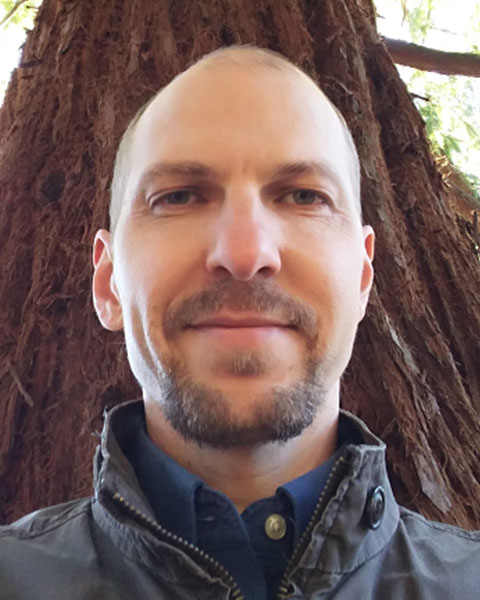Category: Positive Psychology
Symposium 143 - The Science of Inspiration: Moral Elevation as a Positive Emotion with Relevance to Resilience, Stigmatized Populations, and Treatment
Level of Familiarity: All
Recommended Readings: McGuire, A. P., & Mignogna, J. (2021). Inducing moral elevation in veterans with PTSD: An experimental investigation using a mixed methods approach. Journal of Experimental Psychopathology, 12(1), 1-15. doi:10.1177/2043808720982415, Erickson, T. M., McGuire, A. P., Scarsella, G. M., Crouch, T. A., Lewis, J. A., Eisenlohr, A. P., & Muresan, T. J. (2018). Viral videos and virtue: Moral elevation inductions shift affect and interpersonal goals in daily life. Journal of Positive Psychology, 13, 643-654. doi 10.1080/17439760.2017.1365163, Farnsworth, J. K., Drescher, K. D., Nieuwsma, J. A., Walser, R. B., & Currier, J. M. (2014). The role of moral emotions in military trauma: Implications for the study and treatment of moral injury. Review of General Psychology, 18 (4), 249–262. https://doi.org/10.1037/gpr0000018, Taylor, C. T., Pearlstein, S. L., Kakaria, S., Lyubomirsky, S., & Stein, M. B. (2020). Enhancing social connectedness in anxiety and depression through amplification of positivity: Preliminary treatment outcomes and process of change. Cognitive Therapy and Research 2; (4), 788–800. https://doi.org/10.1007/s10608-020-10102-7,
-

Thane Erickson, Ph.D. (he/him/his)
Professor of Clinical Psychology
Seattle Pacific University
Seattle, Washington -
CT
Charles Taylor, Ph.D. (he/him/his)
Associate Professor
University of California, San Diego
San Diego, California -
GK
Gina Kuusisto, Ph.D. (she/her/hers)
US Department of Veterans Affairs
Edgewood, Washington -

Thane Erickson, Ph.D. (he/him/his)
Professor of Clinical Psychology
Seattle Pacific University
Seattle, Washington -
JS
Janarthan Sivaratnam, M.S. (he/him/his)
Student
Swedish Medical Group
Edmonds, Washington -
AM
Adam McGuire, Ph.D. (he/him/his)
Assistant Professor
University of Texas at Tyler
Chandler, Texas
Chair(s)
Discussant(s)
Presenter(s)
In the wake of a global pandemic, racial reckoning, mental health crises, and provider burnout, patients and clinicians alike are at risk for feelings of demoralization. Both basic science and the CBT literatures have taught us much about negative emotions such as fear, anxiety, sadness, and shame. However, CBT-minded researchers and clinicians have recently called for greater attention to the role of positive emotions (Craske et al., 2019; Taylor et al., 2017) and strengths (Padesky & Mooney, 2012). Yet it remains important to study specific positive emotions for their translational potential. Moral elevation is an understudied positive social emotion elicited by recalling or witnessing acts of uncommon goodness by others (e.g., courage, generosity, forgiveness), triggering feelings of being uplifted or inspired, physical sensations (e.g., chest warmth) and a surge of prosocial motivation. Specifically, experimental studies show that elevation causes a behavioral action tendency toward connecting, helping others, or self-growth to a greater extent than inductions of other positive emotions (e.g., amusement). This symposium presents elevation as a distinctive form of joy with relevance to individual and social wellbeing even in the face of adversity.
The first two papers introduce elevation and demonstrate relevance to clinical populations. Gina Scarsella will present on qualitative interviews with sex-trafficked women, a highly stigmatized population. Despite much greater PTSD symptoms and diagnoses than a gender-matched control group, these women described notable experiences of elevation and gratitude even amidst significant life challenges. Trait proneness to elevation appeared to serve as a resilience factor for well-being as well. Next, Thane Erickson will report on elevation among both patients and CBT therapists in the context of transdiagnostic group CBT for anxiety disorders. Feeling inspired by others' hard work in CBT was linked with both better patient therapy processes (group cohesion and alliance) and clinicians’ increased desire to work with patients—suggesting the opposite of burnout.
The next two papers report on elevation-based interventions for coping with demoralization after witnessing racism or other forms of injustice. Janarthan Sivaratnam will report on elevation induction as a “micro-intervention” for increasing support-seeking and antiracist allyship after witnessing anti-Black racism. The induction increased elevation feelings and positive social cognitions in both Asian-American and White samples, and heightened allyship and prosocial outgroup motives among White participants. Next, Adam McGuire will present data from a diary-based elevation intervention for veterans with moral injury, demonstrating proof-of-concept and providing initial evidence of impact on outcomes such as guilt, fear, compassion, and purpose in life.
Lastly, Charles Taylor, an expert on positive emotion interventions, will serve as discussant. He will discuss implications for cognitive and behavioral models of emotional distress and well-being, considering elevation as a form of joy that plays a role in meaning-making even in the face of suffering and stigma.
Learning Objectives:
- Recognize core features of elevation as a positive emotion that elicits prosocial motivation and behaviors.
- Demonstrate relevance of state and trait elevation to the well-being of individuals with significant trauma and/or anxiety symptoms.
- Describe elevation inductions as interventions aimed at cultivating positive emotion and shifting social cognition and behavior.
- Recognize elevation as a novel psychotherapy process variable in CBT.
- Describe elevation’s potential role in combatting stigma and fostering allyship toward marginalized populations.

